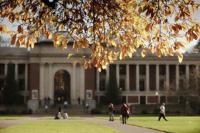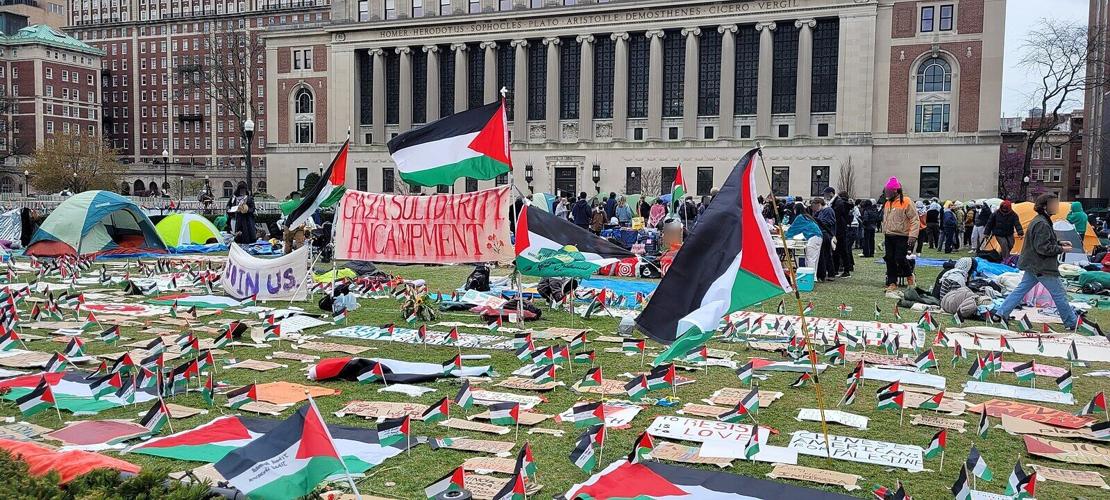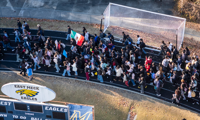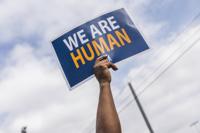
(Flickr)
In early April, more than 1,000 international students began to notice that their student visas had been quietly revoked or their legal status to stay in the U.S. had been terminated without warning.
But just after a few weeks, the administration restored and reversed the terminations. This abrupt change caused a wave of panic and uncertainty amongst international students.
As for students who weren’t initially affected, they are still being affected. Even if their statuses weren’t terminated or had their visas revoked, some wonder, what if they’re next?
Michael Norton, law school graduate and general manager for Diana L. Levy P.A, an immigration attorney office in Los Angeles, explains the complexities of student visas in the U.S. and their impacts on a student’s legal status.
“There are two parts of it [student visas],” Norton said. “There is the visa allowing somebody to come in and out of the country, and then there’s the registration into the SEVIS system.”
The Student and Exchange Visitor Information System (SEVIS) is a U.S. database that manages and tracks the records of international students and visitors of the U.S., which is the ultimate record for a student’s visa eligibility, monitoring the holders’ compliance with student visa conditions allowing them to stay in the country.
“For many years, if someone gets into trouble legally and as long as it wasn’t a major felony, they may have had their visas canceled but they’re still allowed to stay in the United states based on the SEVIS system not being canceled,” Norton said. “So the big change that happened is that they started canceling people out of the SEVIS system.”
Norton states that cancelling visa holders out of the SEVIS system was something that would happen infrequently in the past for cases such as not maintaining their student status, working illegally or being involved in a major felony.
With the cancellation of a student visa, incidents like criminal violations, fraud and even minor misdemeanors like a traffic violation can cause a student visa to be cancelled.
Norton referenced the recent University of Washington arrests of around 30 students who occupied and caused $1M in damages to a recently opened building on campus as part of a pro-Palestinian protest, stating the incident as an example of crime that can result in a student visa being terminated.
“Yes, students have the right to protest and have freedom of speech rights.” Norton said. “But that ability to break the law, trespass or intimidate people is not going to be tolerated in the future.”
But even if participants of the encampments weren’t affected, they’re still highly at risk of their education being at stake.
This is the case for Yousef Khafaja, a Palestinian student at California State University, Long Beach (CSULB).
Growing up as a stateless refugee from Germany, Syria and Jordan, Khafaja saw opportunity in the U.S. to study film, like many international students do.
It wasn’t until the Israel-Hamas war began in the Gaza strip and university encampments and protests began in the U.S. that he began voicing for the rights of Palestinians.

A pro-Palestinian encampment at Columbia University. (Credit: Wikimedia Commons)
Last year, Khafaja was attacked at a pro-Palestinian encampment at University of California, Los Angeles (UCLA) in which he was hit on the head with a metal rod. He proceeded to press charges against UCLA for failure of protection for students and pressed charges against his attackers.
Since this attack, Khafaja has received some media attention and fears the future of his student visa status in the U.S. because of it. Upon hearing the news of the revocations for the first time, he believed that he’d be one of the first ones to go.
Though he was not the one that initiated the attack at the protest, he still fears that it will somehow be used against him and be the cause of his visa potentially being revoked. When asked about his plan if he were to be affected, he said he will not consider leaving as an option.
“My main belief is that I know I have rights here, and I will continue to exercise those rights that I have granted by the constitution.” Khafaja said. “I have already prepared an emergency plan and emergency document in case of a possible arrest with a list of people to call.”
Even though Khafaja is adamant on his freedom of speech as a Palestinian for Palestinians, he is also aware of its risks to his education and what he could lose if he was deported.
This is the same awareness and fear that ran through the minds of many international students across the U.S.
A student from India at a university in California said her first reaction to the initial revocations was to contact her campus counselor, asking if her visa was going to be terminated.
“I was really scared.” She said, “I’m actually flying back to India for summer break and I had to meet with her asking if my record was okay.”
Her counselor told her that travelling out of the country is a risk for her, being that she is on a student visa and might not be able to come back, sending her even more in a panic.
“My tickets are booked and I haven’t seen my parents in over a year,” she said. “Having to read about how leaving the country is really risky right now is really scary for me. [...] especially because I know I want to work here in the future.”
“It’s just disheartening.” she said.
As new revelations come out from the administration on what and who is being targeted next, the questions here are: Do international students still want to study in the U.S.? How about future international students? And hw does this type of uncertainty for international students affect the decision in wanting to stay or become a student here?
For Norton, he believes that it is still too early to tell and that as long as international students here aren’t doing anything under their visas that they’re not supposed to do and following the rules, they should be okay.
“As much as we here in the United States see the fighting between the different political parties, [...] the United States is still a beacon of hope to people.” Norton said.
But as for the affected students, they’re not so sure at the moment.
“I think a lot of students will reconsider studying in the U.S.,” Khafaja said. “I already have a lot of friends who are considering applying for schools outside of the U.S. to transfer [to].”
“If this keeps continuing with so much uncertainty, [...] in terms of international students, they're obviously going to be really scared to come here.” the student said.
Though the visa scare has passed, for now, and statuses have been restored, there is still doubt in the air for international students across the U.S., from not just what has already happened, but also for what’s next.













(0) comments
Welcome to the discussion.
Log In
Keep it Clean. Please avoid obscene, vulgar, lewd, racist or sexually-oriented language.
PLEASE TURN OFF YOUR CAPS LOCK.
Don't Threaten. Threats of harming another person will not be tolerated.
Be Truthful. Don't knowingly lie about anyone or anything.
Be Nice. No racism, sexism or any sort of -ism that is degrading to another person.
Be Proactive. Use the 'Report' link on each comment to let us know of abusive posts.
Share with Us. We'd love to hear eyewitness accounts, the history behind an article.